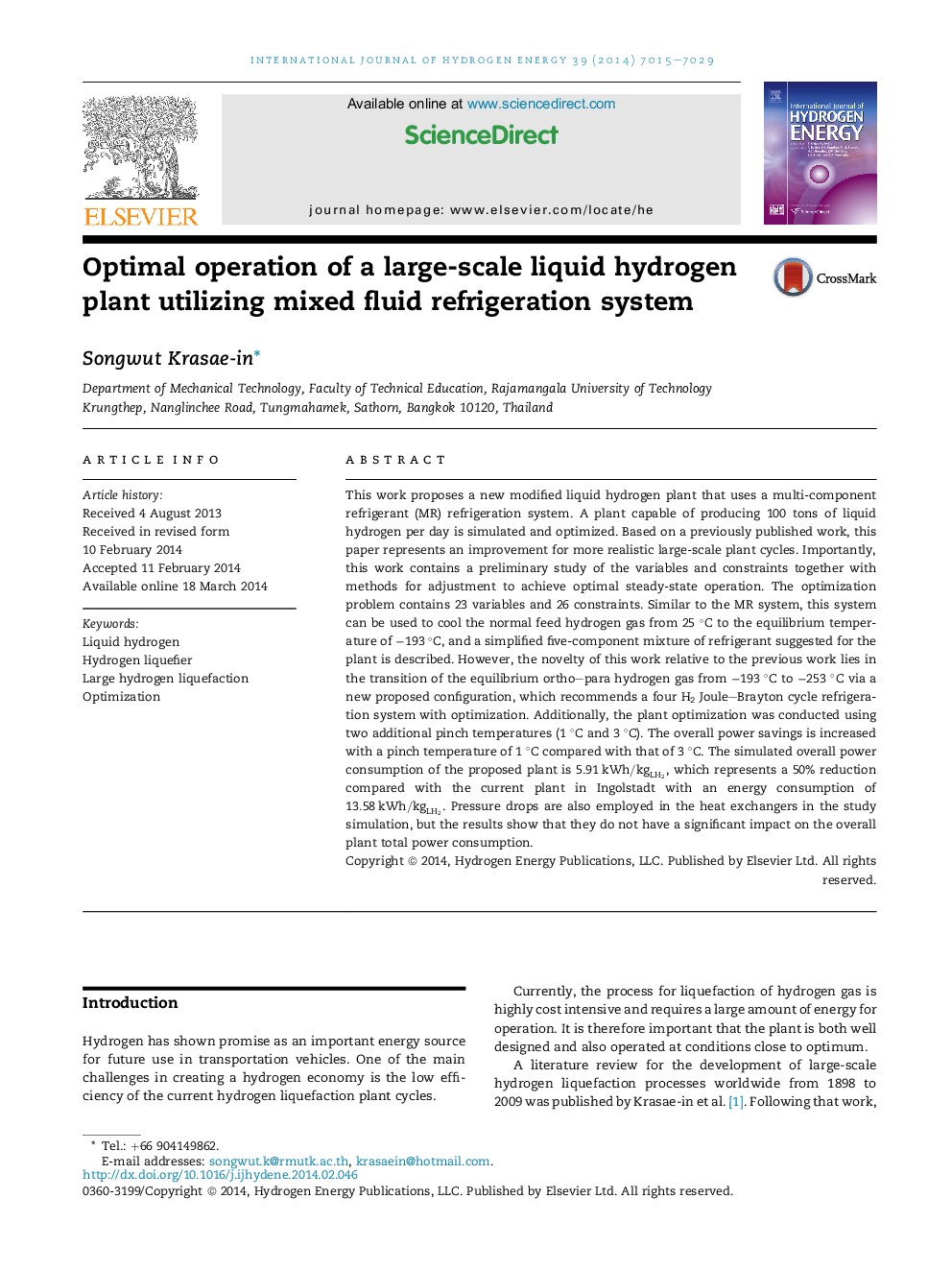| Article ID | Journal | Published Year | Pages | File Type |
|---|---|---|---|---|
| 1273456 | International Journal of Hydrogen Energy | 2014 | 15 Pages |
•This is a new innovative cycle of hydrogen liquefaction plant that consumes less power.•A proposed multi-component refrigerant refrigeration cycle is utilized.•The simulated power consumption of the plant is 6 kWh per kg of liquefied hydrogen.
This work proposes a new modified liquid hydrogen plant that uses a multi-component refrigerant (MR) refrigeration system. A plant capable of producing 100 tons of liquid hydrogen per day is simulated and optimized. Based on a previously published work, this paper represents an improvement for more realistic large-scale plant cycles. Importantly, this work contains a preliminary study of the variables and constraints together with methods for adjustment to achieve optimal steady-state operation. The optimization problem contains 23 variables and 26 constraints. Similar to the MR system, this system can be used to cool the normal feed hydrogen gas from 25 °C to the equilibrium temperature of −193 °C, and a simplified five-component mixture of refrigerant suggested for the plant is described. However, the novelty of this work relative to the previous work lies in the transition of the equilibrium ortho–para hydrogen gas from −193 °C to −253 °C via a new proposed configuration, which recommends a four H2 Joule–Brayton cycle refrigeration system with optimization. Additionally, the plant optimization was conducted using two additional pinch temperatures (1 °C and 3 °C). The overall power savings is increased with a pinch temperature of 1 °C compared with that of 3 °C. The simulated overall power consumption of the proposed plant is 5.91kWh/kgLH2, which represents a 50% reduction compared with the current plant in Ingolstadt with an energy consumption of 13.58kWh/kgLH2. Pressure drops are also employed in the heat exchangers in the study simulation, but the results show that they do not have a significant impact on the overall plant total power consumption.
